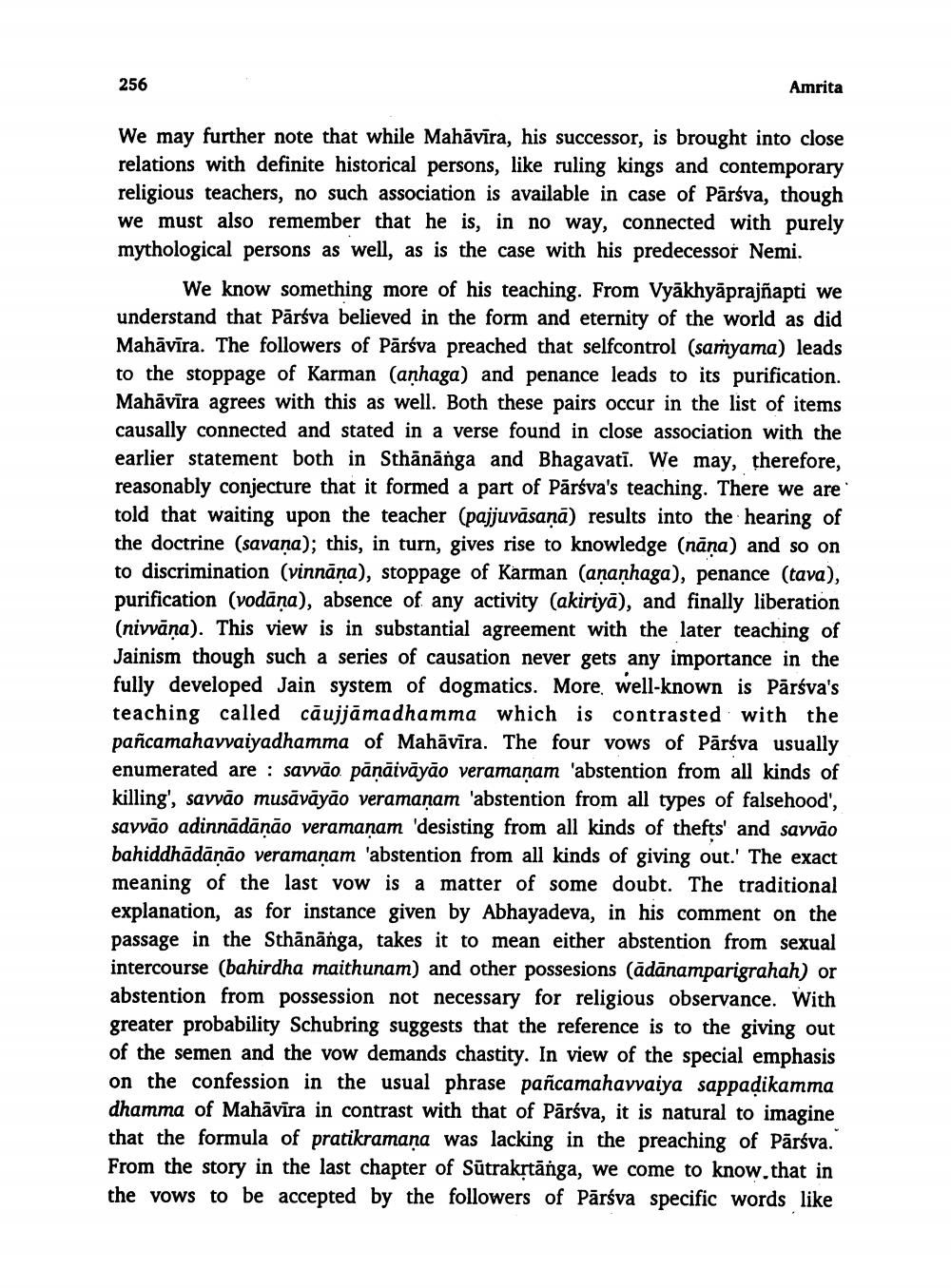________________
256
Amrita
We may further note that while Mahāvīra, his successor, is brought into close relations with definite historical persons, like ruling kings and contemporary religious teachers, no such association is available in case of Pārsva, though we must also remember that he is, in no way, connected with purely mythological persons as well, as is the case with his predecessor Nemi.
We know something more of his teaching. From Vyakhyāprajñapti we understand that Pārsva believed in the form and eternity of the world as did Mahāvīra. The followers of Pärśva preached that selfcontrol (samyama) leads to the stoppage of Karman (anhaga) and penance leads to its purification. Mahāvīra agrees with this as well. Both these pairs occur in the list of items causally connected and stated in a verse found in close association with the earlier statement both in Sthānanga and Bhagavati. We may, therefore, reasonably conjecture that it formed a part of Pārsva's teaching. There we are told that waiting upon the teacher (pajjuvāsaṇā) results into the hearing of the doctrine (savana); this, in turn, gives rise to knowledge (nāṇa) and so on to discrimination (vinnāna), stoppage of Karman (ananhaga), penance (tava), purification (vodāņa), absence of any activity (akiriyā), and finally liberation (nivvāna). This view is in substantial agreement with the later teaching of Jainism though such a series of causation never gets any importance in the fully developed Jain system of dogmatics. More, well-known is Pārsva's teaching called căujjāmadhamma which is contrasted with the pañcamahavvaiyadhamma of Mahāvīra. The four vows of Parsva usually enumerated are savvão pāṇāivāyāo veramaṇam 'abstention from all kinds of killing', savvão musāvāyāo veramaṇam 'abstention from all types of falsehood', savvão adinnādāṇāo veramaṇam 'desisting from all kinds of thefts' and savvão bahiddhādāṇāo veramaṇam 'abstention from all kinds of giving out.' The exact meaning of the last vow is a matter of some doubt. The traditional explanation, as for instance given by Abhayadeva, in his comment on the passage in the Sthānānga, takes it to mean either abstention from sexual intercourse (bahirdha maithunam) and other possesions (ādānamparigrahah) or abstention from possession not necessary for religious observance. With greater probability Schubring suggests that the reference is to the giving out of the semen and the vow demands chastity. In view of the special emphasis on the confession in the usual phrase pañcamahavvaiya sappaḍikamma dhamma of Mahāvīra in contrast with that of Pārśva, it is natural to imagine that the formula of pratikramana was lacking in the preaching of Pārsva. From the story in the last chapter of Sūtrakṛtānga, we come to know that in the vows to be accepted by the followers of Parsva specific words like




